Regardless of whether you came into this world holding a whisk or if you manage to burn your eggs every morning, unless you’re actually a professional, we could all stand to elevate our cooking skills. That’s why we’ve gone through some of the best tips chefs have shared on two Reddit threads of things amateurs keep doing wrong in the kitchen and the easiest ways to avoid common mistakes, so we can all impress our friends and family at our next dinner party. So tie on your aprons, preheat your ovens and take a bite out of this list of recommendations from the experts. Be sure to upvote your favorite culinary pointers, and then if you’re inspired to learn even more about cooking, check out Bored Panda’s last publication on the same topic right here.
#1
The vast majority of people think that the terms "icing" and "frosting" are interchangeable. This is not the case. Icing is made with sugar and liquid and is generally (there are a few exceptions, such as fondant) pour-able. Think pound cake and donuts. Frosting is made with sugar and fat, such as butter or shortening, and is generally fluffy and spreadable. Varieties of frosting include buttercream and cream cheese.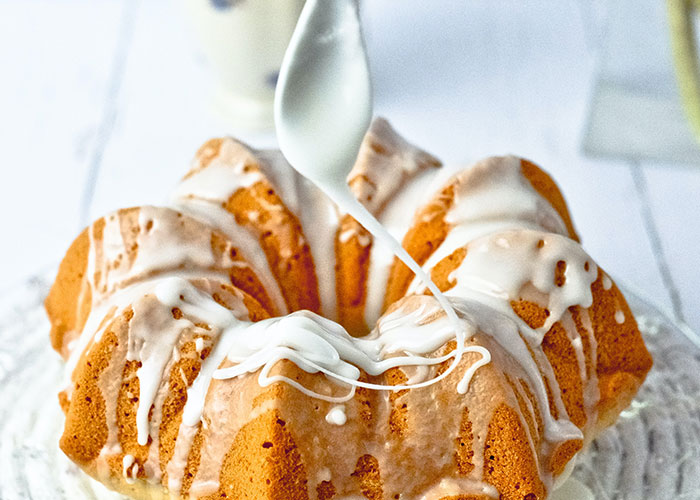
Image credits: Frosting_or_Icing
Everyone has a different relationship with cooking. Some view it as an artistic hobby or a way to connect with their heritage, while others see it as the bane of their existence. Learning how to cook can be a life-long journey for those who are passionate, but if you’re looking to just pick up the basics, you can start small and practice with the tips from this list. Even if being in the kitchen scares you and your fridge currently only holds takeout boxes, you have to admit that you enjoy eating delicious meals. So why not figure out how to make them yourself?
There are plenty of reasons to learn cooking basics, one of them being that safety is actually a concern in the kitchen. Boiling water, hot oil and sharp tools can lead to a host of injuries, so it’s important to understand exactly what you’re doing. It may seem like a no brainer, but learning how to properly use your knives (and knowing the purpose of each knife) can help you avoid turning a lovely dinner into a trip to the emergency room. It's actually safer to have freshly sharpened knives too, as you're more likely to cut yourself with a dull blade.
#2
Keep your fingertips behind your knuckles, your knife in front of your knuckles, and keep your blade on the cutting board. Your fingers will thank you.
Image credits: BAANG
#3
All that brown stuff on your pan after you brown some meat or veggies? Use it! That's called fond - it's f*****g amazing and will make your sauces have way more depth. You can easily get it off the bottom of the pan with a little wine, which is called "deglazing."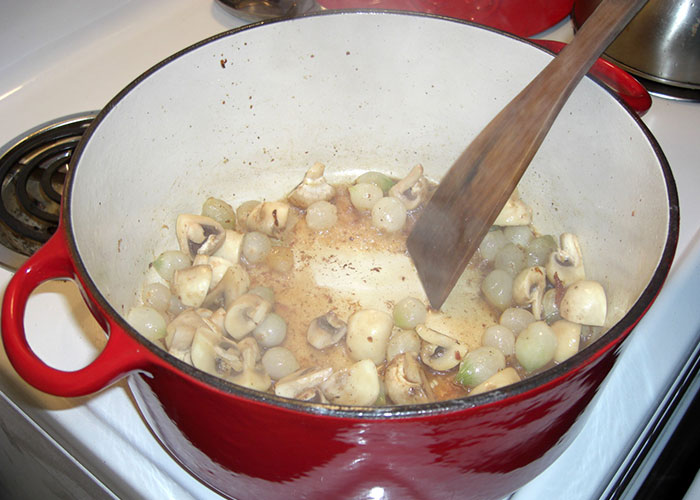
Image credits: actualemu
There are various tips on this list about how to safely slice and dice your foods without losing a finger, but certain foods pose more risks than others. You're likely to be cautious when dicing an onion, but don't throw caution to the wind when you're making guacamole either. According to OSF HealthCare, avocado-related incidents send nearly 9,000 people to the hospital every year. This is because many of us hold the avocado in our palms when plunging the knife in to get the seed out.
I must admit, I’m guilty of this method of avocado cutting, and I did it almost every morning for years while in the throes of an avocado toast addiction… But Dr. Ramsey Ellis told OSF HealthCare that it’s much safer to set the avocado on a flat surface, like a cutting board, when going to remove the pit. She also notes that, “There are a variety of special tools on the market that are between three and five dollars that allow you to safely cut and then stab the pit of an avocado and remove it, and that can prevent a lot of injury.” Purchasing a specialty tool for this purpose may seem unnecessary, but it would definitely be less expensive (and traumatic) than a trip to the emergency room.
#4
Sharpen your knives. It's easier and actually safer. You are more likely to cut yourself with a dull knife than a sharp one. Learn how to properly and safely use your knives, and what each knife is even used for. It's game changing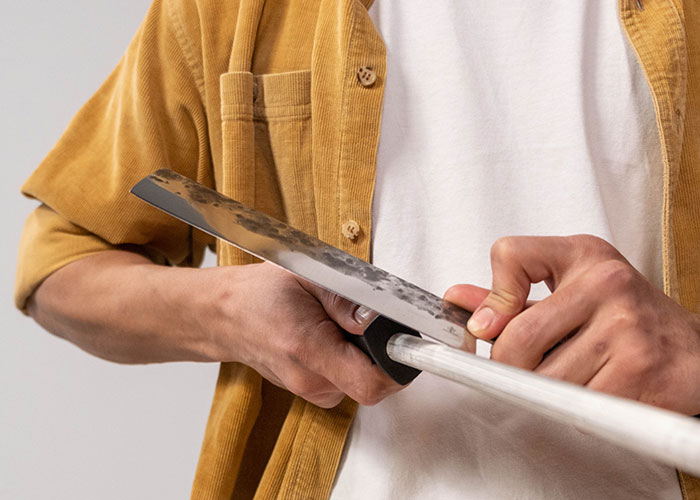
Image credits: Tapir_balls
#5
If I see one more person press down on a burger while it's on the grill, I'm flipping that grill over.EDIT: To everyone saying "Smashburger", you know what kind of person I am talking about. The self-proclaimed BBQ grill king who loves to squish the burger and asks your temp but everyone gets a hockey puck. It happened this weekend and every single time, I want to flip their grill over.
EDIT 2: Since I'm getting criticism about the well done burger... changed "well done burger" to "hockey punk" to further emphasize my example.
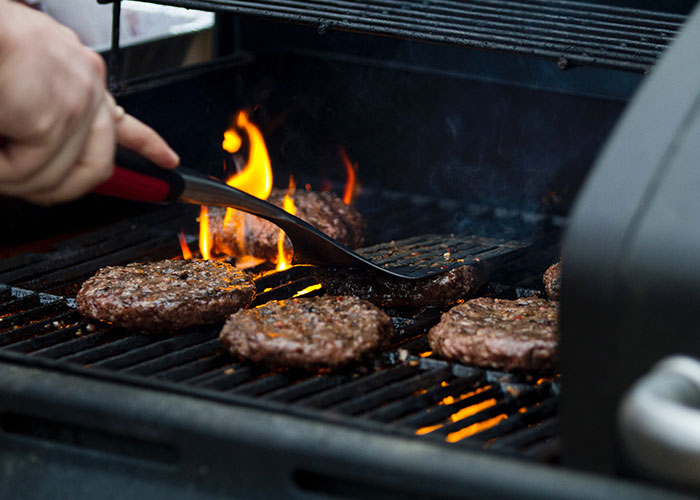
Image credits: anon
#6
My pro chef and former chemist friend gave me an earful for putting my tomatoes in the fridge.He explained how the cold temp. changes the chemical composition and makes them taste s**ttier.
I no longer put my tomatoes in the fridge and they are tastier.
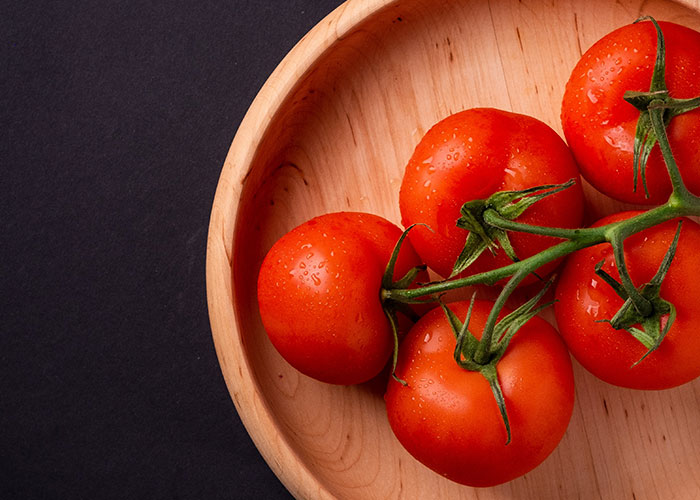
Image credits: GaryARefuge
We tend to be worried about cuts and burns when cooking, but another common mishap that can lead to devastating effects is a kitchen fire. According to the National Fire Protection Agency, between 2014-2018, cooking incidents were the top cause of fires in American households. Most of them were small, limited to the toaster or oven and easily put out, but when they become unmanageable, these kitchen fires can turn fatal. Holidays are the most common times for these fires to happen, with Thanksgiving having 250% more than the average day in 2018, but even on a normal day, nearly 500 cooking fires are reported in the US. To stay safe in your kitchen, or backyard if you’re grilling, it’s important to always turn off equipment immediately when you’ve finished using it and use great caution when cooking with hot oil. Avoiding common cooking mistakes can help you eat more satisfying meals and even save your life.
#7
When baking - make sure your butter and eggs are all room temperature.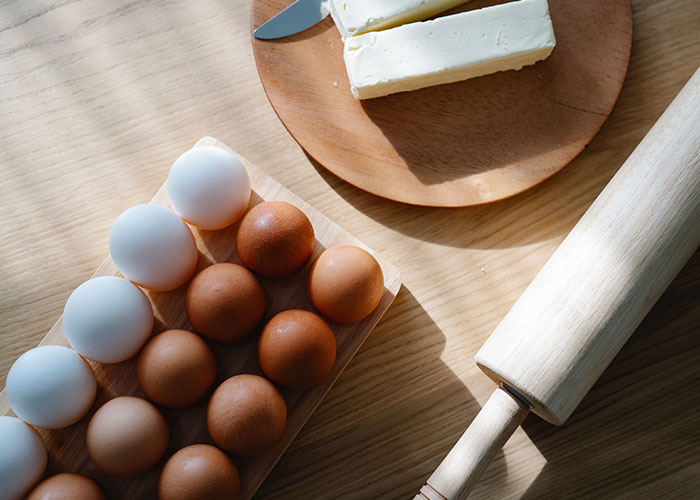
Image credits: RageMonster
#8
Not a pro, but wash your damn rice! It's easy and it makes the rice so much better.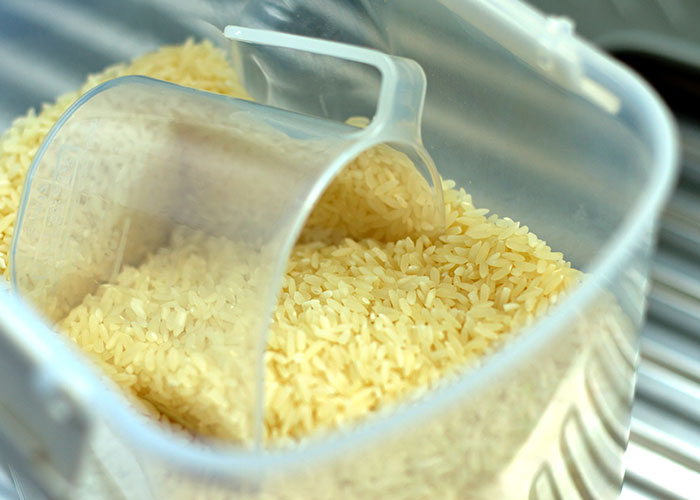
Image credits: Poopinanreadin
#9
Hello, I am the chef at a 5 diamond hotel in San Francisco. The biggest thing to learn when just starting to cook, is mise en place. "Everything in its place." This is ultimately to get food timings correct and precise, and for safety and control reasons. The second biggest thing to learn in the kitchen is safety. I once had a cook with 25 years experience get complacent and splashed hot oil on his face. Now we call him twoface. Cooking is a creative release when done outside of a professional kitchen, so take your time and don't hurt yourself. The third biggest thing to learn, and I tell all my cooks this everyday, is taste, season, taste. Taste your food, season it, and taste it again. Most people (whether they believe it or not) have the same taste thresholds, so what tastes good for you will taste good for someone else. Last thing I can add if you want to improve your cooking, is to cook more! Cook everyday, because practice makes perfect. Eat. Eat everywhere and anything.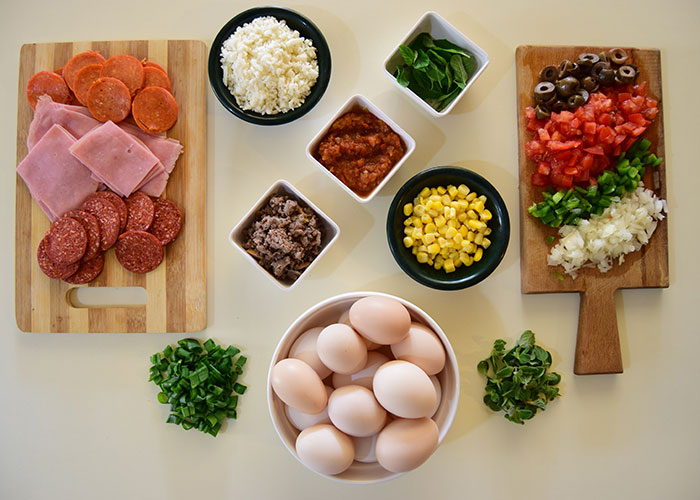
Image credits: chongkey
Aside from keeping you safe, improving your culinary skills can turn into a fun hobby. If you’re stuck in a rut making the same meals over and over again, as many of us are, branching out and trying a new recipe can be something to look forward to. Expanding your palette can also be exciting, as you may not be as familiar with the cuisines of other cultures. Do you know how to make authentic Mexican chilaquiles? Have you ever prepared Pad Thai from scratch? The more adventurous you become in the kitchen, the more likely you are to want to keep experimenting. One tip many chefs share is to learn techniques first, and then you’ll be well equipped to prepare any recipe. So to master some of the culinary basics, we consulted Oxo’s list of Basics of Home Cooking 101: 12 Skills and Techniques for Beginners.
#10
The veggies in your sauces and stuff- cook that s**t first. Do not add raw onions to already simmering tomato sauce and expect it to taste good. Also, huge amounts of random spices make food taste bad. Learn what they are and where to use them.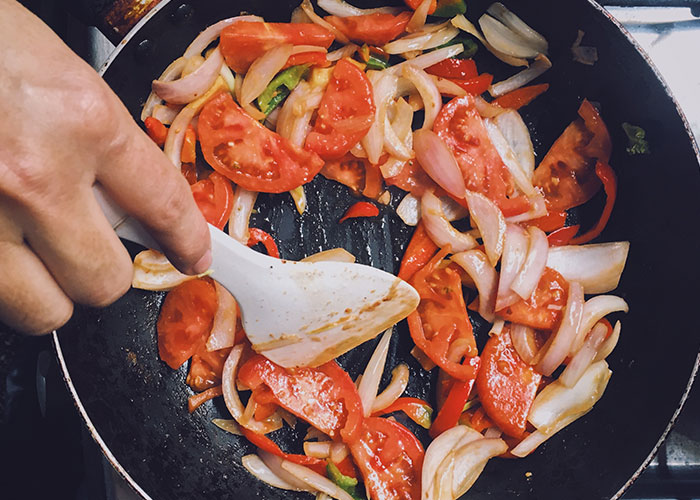
Image credits: B**chinIndika
#11
Just being impatient in general.Not waiting for pans to heat up,water to boil or preheating ovens.
Cutting into things to check if they are cooked after 5mins in the oven. You want to know if your roast is cooked? Get a meat thermometer. Seriously they cost less than $10
Thats my other big peeze... using the wrong equipment for the job. You dont dice chicken with a steak knife. You dont slice tomatoes with a steak knife. Steak knives are for cutting steaks on your plate. thats it. A fork is not a whisk, its a fork. A coffee cup is not a measuring cup. It may be 250ml but dont assume it. Dont drain your pot of pasta by tipping it into the sink holding the wooden spoon over the lip and try to stop pasta falling out. Just use a fricken colander.
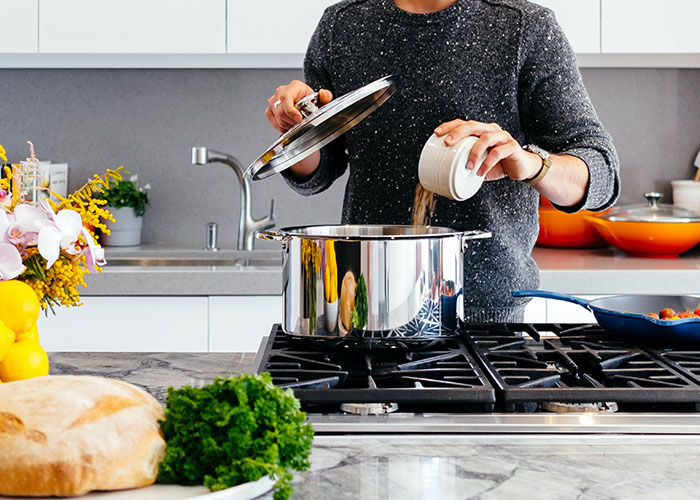
Image credits: anon
#12
Any spices you have, do not store them in sunlight or over top of your goddamn stove. Heat and moisture are bad to just about anything. This kills the flavour.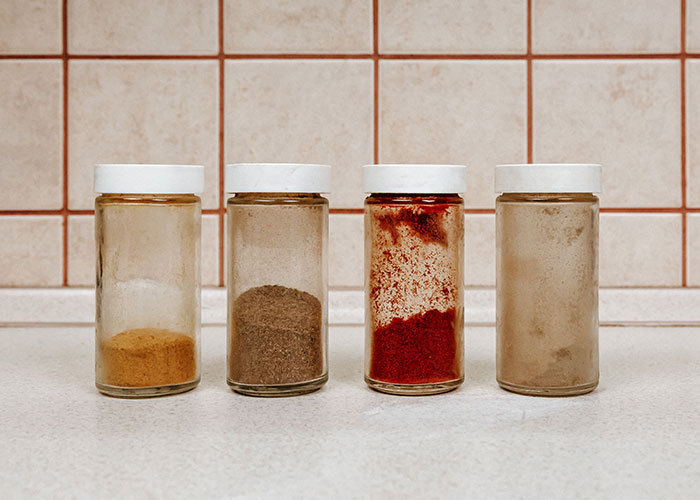
Image credits: RageMonster
Basic knife skills are expected for any chef to know like the back of their hand, but they’re great for amateurs to understand as well so we can properly follow a recipe. When the instructions use lingo like “chiffonade”, don’t run away out of fear. Simply memorize what these terms mean (or Google them every time, we don’t judge!), so you can confidently prepare your meals without any added stress. Slicing calls for thin, flat pieces, while dicing requires small squares that resemble dice. Mincing is cutting foods even smaller than diced pieces, think minced garlic, and chopping is for larger chunks of foods like potatoes and carrots in a stew. Julienned vegetables are in long, thin strips, and to chiffonade is to “finely cut herbs or leafy vegetables”.
#13
If you make a sauce, from personal experience, you cannot f**k up by stirring too much. You can, however, f**k a sauce up by not stirring enough.Also, learning to make a roux will up your finishing game a TON. It's really easy: 1 part fat and one part flour (by weight). If you don't have a scale (and I'm guessing, since this is an amateur cook thread), do one part fat and 1 3/4 part flour (like 1 Tbsp. fat and 1 3/4 Tbsp. flour). Put your fat in a pot or pan and melt it on the medium setting on your stove, then add in the flour, stirring constantly. You'll have a paste, which is what you want.
Get that right, and remember to always stir, and you will have the creamiest damn sauces, gravies, soups, whatever you want to make.
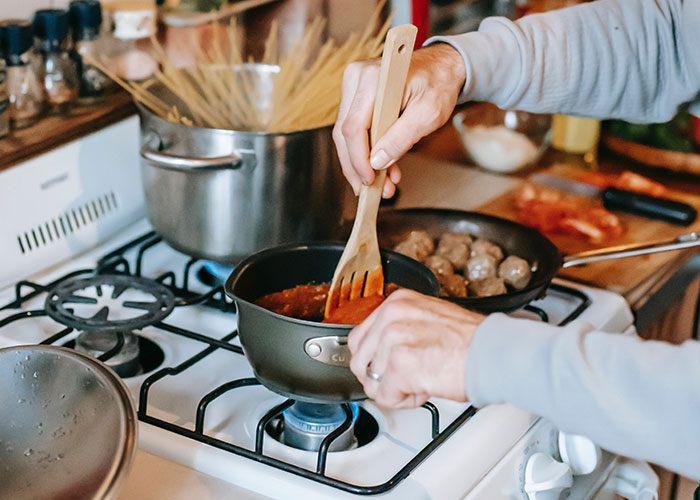
Image credits: echisholm
#14
Don't just dump a load of salt and pepper into the mix at the last minute.Season every single thing, the veg, the meat, the sauce. and if you're unsure of how much to use. just keep adding in small pinches and taste it.
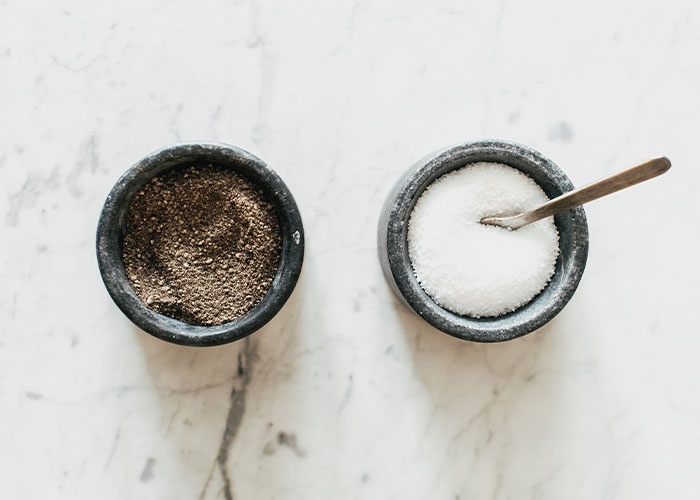
Image credits: Jafol8
#15
I know one mistake I used to make was to buy canned mushrooms and use those for recipes. The first time I used fresh mushrooms for something, I realized the dreadful error of my ways, and I haven't bought canned mushrooms since!Always use fresh mushrooms, people!
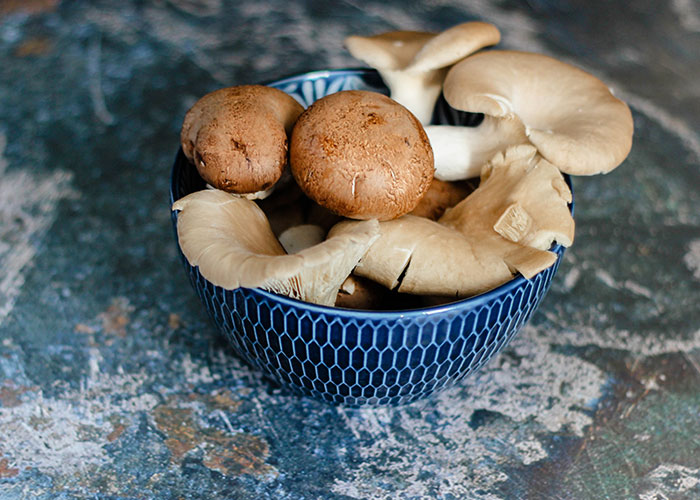
Image credits: TakingItOffHereBoss
While you’re at it memorizing cooking jargon, you might want to learn some terminology for your stovetop too. To sear something is to quickly brown the outside of a piece of meat on a high-temperature pan to keep the juices sealed in. Sautéing involves cooking food in a little bit of fat, like oil or butter, on high heat and moving it around the pan frequently. A stir-fry requires a little more fat than a sauté and is done at an even higher temperature. Then we have steaming, which is pretty self-explanatory, as it calls for placing a basket or colander over boiling water to allow only the steam to cook the veggies or seafood.
#16
Not drying your meat before you sear it.**Not a professional chef, but this advice is so basic, and so rarely followed, that it bears repeating.

Image credits: varro-reatinus
#17
Reuse the boiled water from a pasta pot. That starchy salty s**t is amazing as a sauce base, or a great sub for any other water needed in the recipe.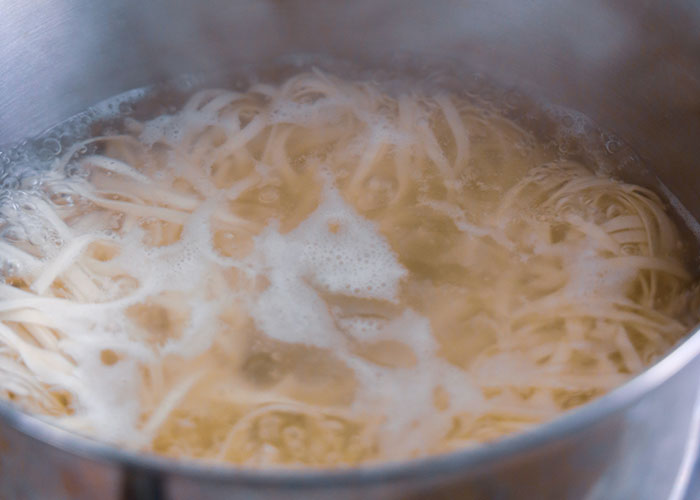
Image credits: Filmsdude
#18
Tossing pizza dough makes it extremely flat on the bottom and typically too much crust. Simply hold it with two hands like a wheel and rotate it :) Enjoy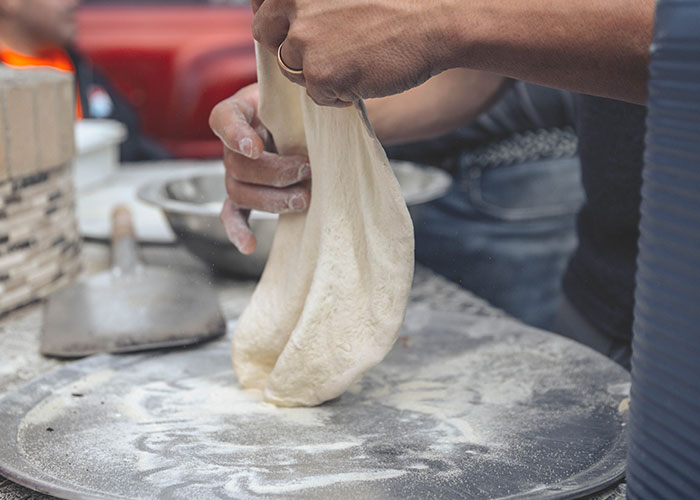
Image credits: 280Gaming
Lisa Milbrand notes in her list of cooking tips on Oxo that knowing how to properly roast meats and vegetables can be a game changer in the kitchen as well. Roasting can be one of the easiest ways to prepare food, as you get some time to relax once it’s in the oven, and it can provide mouth watering results with the right combinations of oil and spices. Every food will have a slightly different cooking time, as root vegetables take much longer than asparagus for example, but Lisa reassures readers that, “No matter what vegetable you’re roasting, you’ll be able to tell when it’s ready by sticking a knife into the center of a piece. If the knife goes in easily and the edges of the vegetable are a nice golden brown, it’s done.” Personally, I think some nicely roasted and heavily sesasoned cauliflower and sweet potatoes have to be among the most delicious foods in the world.
#19
Pastry Chef here. USE GODDAMN SCALES.It's sO much easier and you won't lose count of how many cups of flour you've added
Plus measuring by volume with dry ingredients can be so inconsistent due to different scooping styles, a more aerated flour etc
Don't come running to me asking what happened with your baked goods when you've been measuring using cups
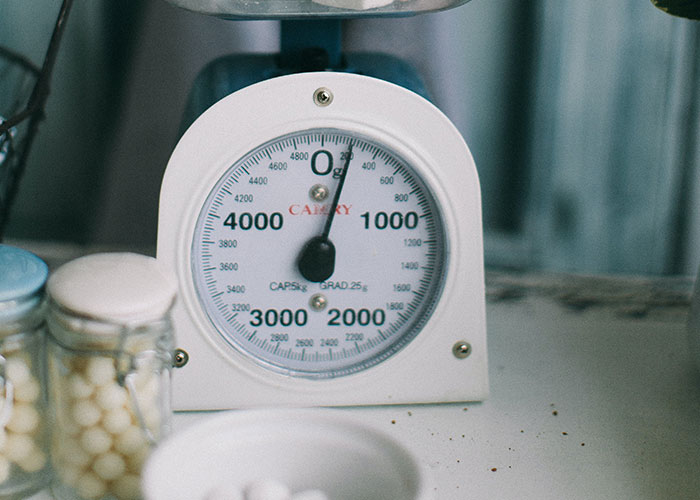
Image credits: andromedanii
#20
Buy a real knife and learn to use a sharpening stone and honing bar. Not the sh**ty 15$ knives you get at Walmart. Now I'm not saying spend a c**pton of money at a specialty store. I'm saying invest in your food and your own personal growth as an at-home chef etc...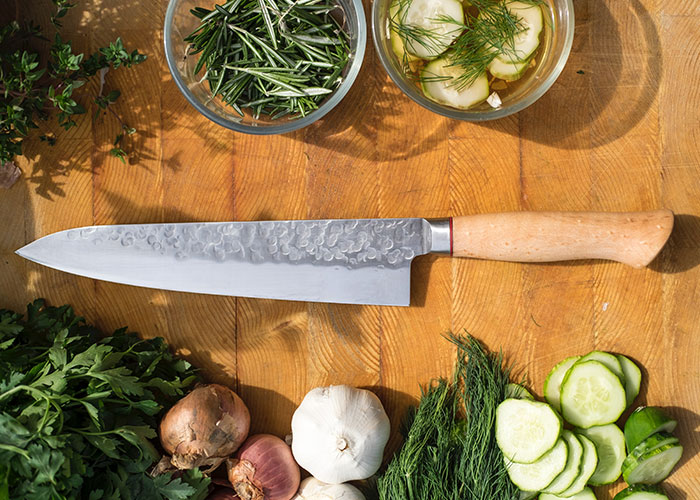
Image credits: RageMonster
#21
After you are done working with garlic, rub your hands along your stainless steel sink vigorously. This will remove to odour for the most part. Finish by washing hands you filthy animal.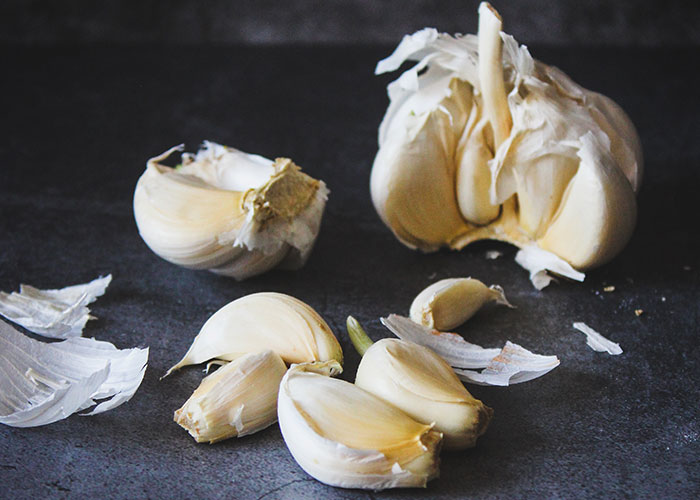
Image credits: RageMonster
Grains and pasta are also essentials to master when elevating your cooking game. They can be super simple, as the basic idea is boiling them in water, but a few tricks can go a long way. First, remember to rinse your grains like rice and quinoa before cooking them to remove excess starch and ensure they don’t turn too mushy. Always remember to add plenty of salt when boiling grains or pasta as well, and don’t try to squeeze anything into a pot that’s too small. You can also save a cup of your pasta water to use later in your sauce, as it will be full of salt and starch that will add the perfect touch to your final dish.
#22
When chopping herbs, toss a little sprinkle of salt on the cutting board. It prevents them from flying all over the place.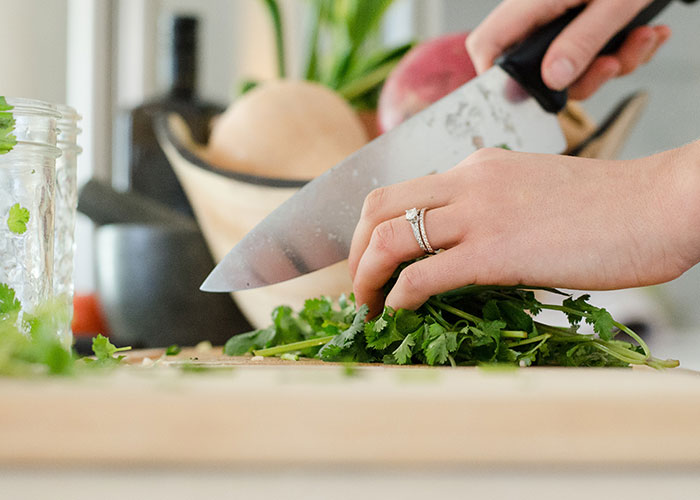
Image credits: RageMonster
#23
If your dish is 'missing something' chances are it is acidity. Now this doesn't apply to everything but I think a lot of people just don't think to add some lemon juice to a sauce or a stew for example and it can make all the difference. I always keep some fresh lemons at home because lemon juice in a bottle is usually just a chemical product.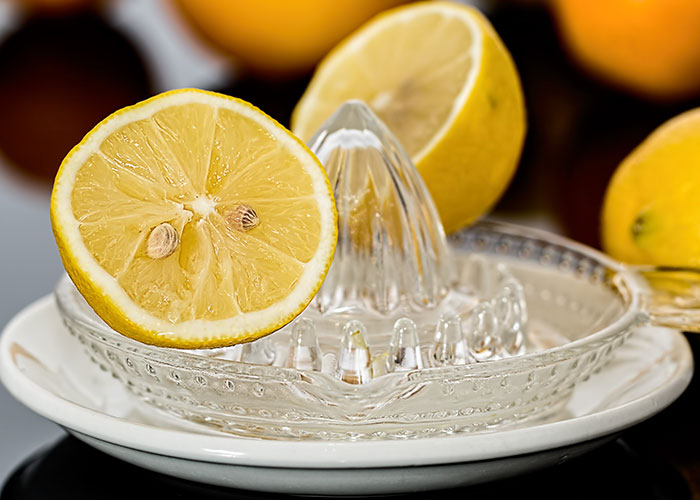
Image credits: surewhythehellnot_
#24
I would add when your baking follow the recipe exactly. When it says 1 teaspoon, it means 1 teaspoon. Not "ah that looks like a teaspoon." Baking requires exact prep work otherwise your finished product won't be right.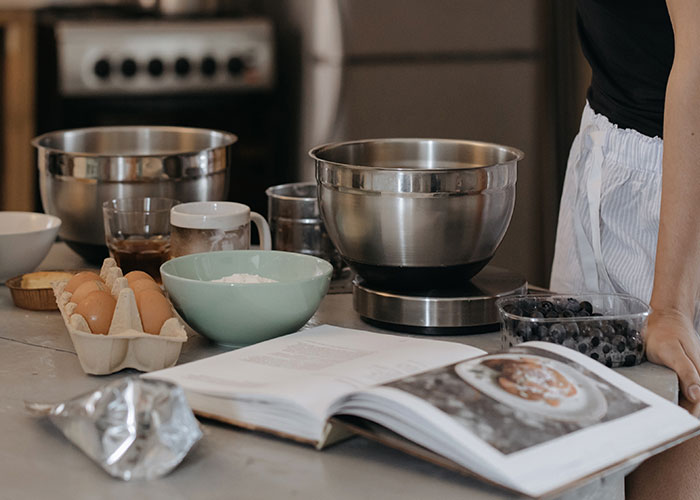
Image credits: Lorbmick
Lastly, Lisa mentions that stocking your kitchen properly can make a huge difference when you’re cooking as well. The most important knives to have are a chef’s knife, a serrated bread knife and a paring knife, but you don’t need much else for everyday purposes. Be sure you’ve got some decent containers for storing leftovers too, with a variety of sizes, so you can keep your food fresh and safely preserved. Then when it comes to cleaning supplies, do a bit of research on what is appropriate for the specific pans and dishes you own. Depending on the material, certain cleaners and brushes can do more harm than good, and not everything should be tossed in the dishwasher.
#25
When making mashed potatoes, put whole uncut potatoes in a pot with cold water covering them. Bring them up to a boil and when thoroughly cooked and ready to be mashed, use only a fork or potato masher, no hand mixers! Hand mixers will over-mix the starches from the potato turning it into a gummy viscosity.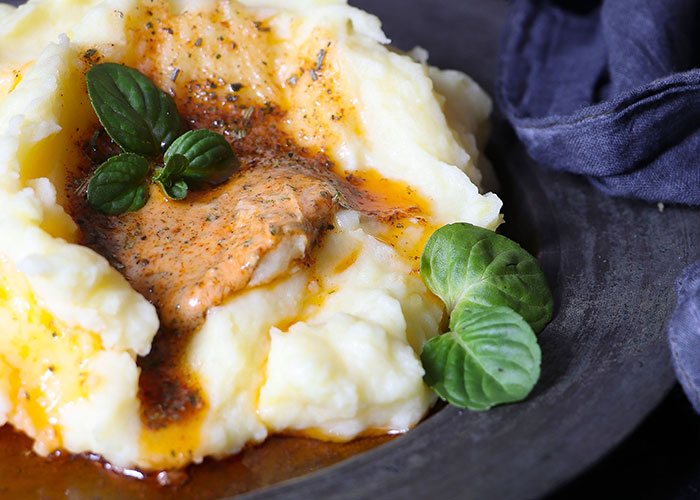
Image credits: DingoDeacon
#26
Buy a Microplane, it makes the veggies and accent cheeses that you grate both look and feel better. Smaller pieces have less of a focus on texture and more of a focus on flavour. I.E - Grana Padano being grated onto a Caesar salad, or lemon grated into a lemon in salad dressing.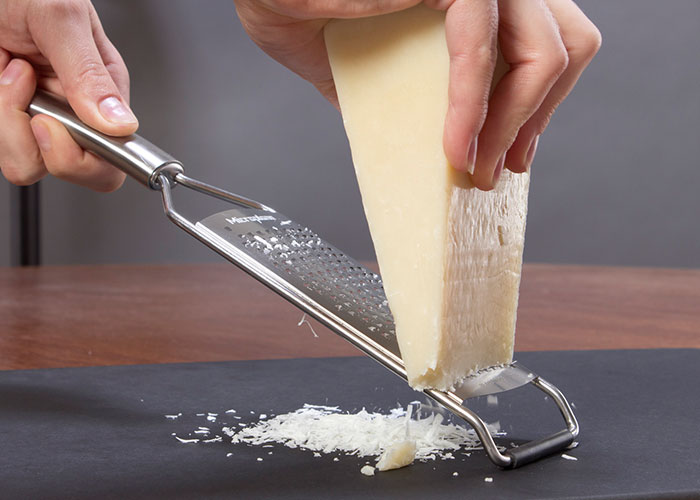
Image credits: RageMonster
#27
Make sure you have good ingredients. That box of baking soda from 5 years ago is not going to work that well anymore.While this list may seem overwhelming if you're a novice in the kitchen, even remembering a few of these skills and tips can go a long way. Cooking should be enjoyable and pleasurable, so don't stress yourself out. But I hope this helps you avoid some common errors in the future and inspires you to experiment with a new recipe instead of grabbing your usual takeout this weekend. Enjoy reading the rest of these pointers, and remember to upvote your favorite responses. Then let us know if you have any helpful tips you'd like to share with your fellow pandas in the comments down below. Bon appétit!
#28
Don't overcrowd the pan.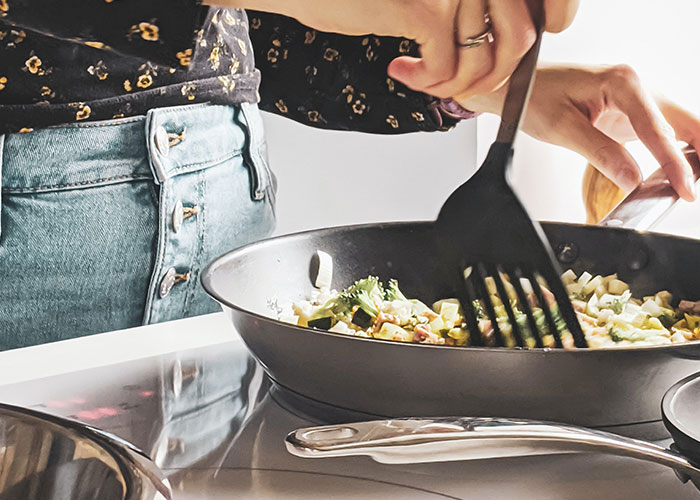
Image credits: reddit
#29
A lot of people don't brine their meat before cooking. Please do so, your tastebuds will thank you.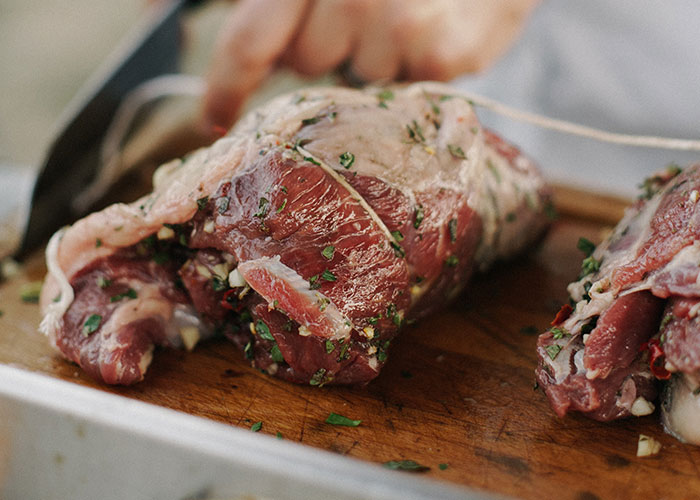
Image credits: Jewbano
#30
When you are cooking a turkey or roast in the oven - Prepare a vegetable bed. Cut onions in half and large pieces of carrot and whole garlic gloves on the bottom of the pan. Then rest the product on top. This will boost the flavour and aroma of the meat as it is cooking.#31
Go on youtube and watch a couple of 5-10 minute videos on proper knife handling techniques. You can find ones that'll tell you how to easily dice onions without crying like a baby, how to get even cuts, and so on.#32
Stop getting ideas from pinterest. Most of what I see coming off of pinterest is crappy recipes but good plating. Great for unique plating ideas but that is it.When going off of a recipe, use the EXACT recipe. I never alter a dish until I've cooked it a few times and have a genuine idea what might work better.
Also use well known cookbooks over websites like pinterest or allrecipes. Those dishes have been really worked over most of the time and editorial oversite makes them easier to use. When you buy a highly reviewed cookbook you have something for life and they are full of helpful tips and guides.
Quit holding your phone or balancing your laptop on the counter. It is gonna get gross.
#33
Read the whole recipe before you touch anything including the directions. Then get all the ingredients together and measured before anything touches heat. Chop vegetables slice meat mix spices. Cooking is so much easier when you do the prep first and then just worry about what's in the pan when the heat is on. What do you think the kitchen does all afternoon between lunch and dinner service, get things together so the actual cooking is way faster and easier.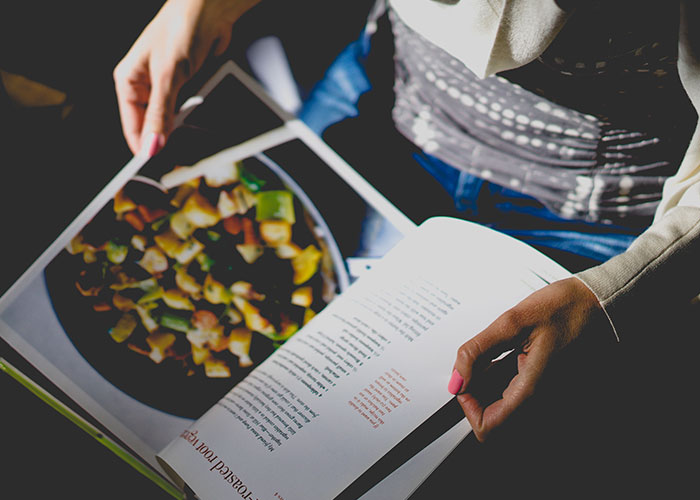
Image credits: mousicle
#34
If you burn your toast. No biggie. Rub the burnt sides of the toast together over the sink until the charred stuff is gone. Kinda like rubbing 2 bits of sand paper together.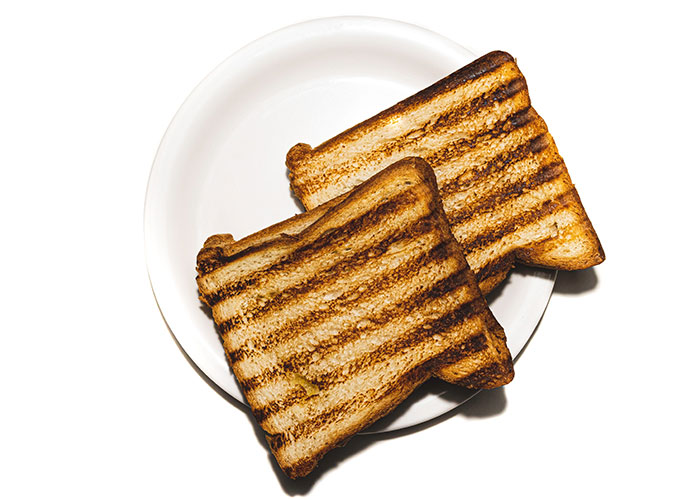
Image credits: bitzer_maloney
#35
Put a damp napkin or towel underneath your cutting board to keep it stable. You can wail on whatever you want however hard you want with the peace of mind that your cutting board won't go flying off the counter along with your food and *sharp knife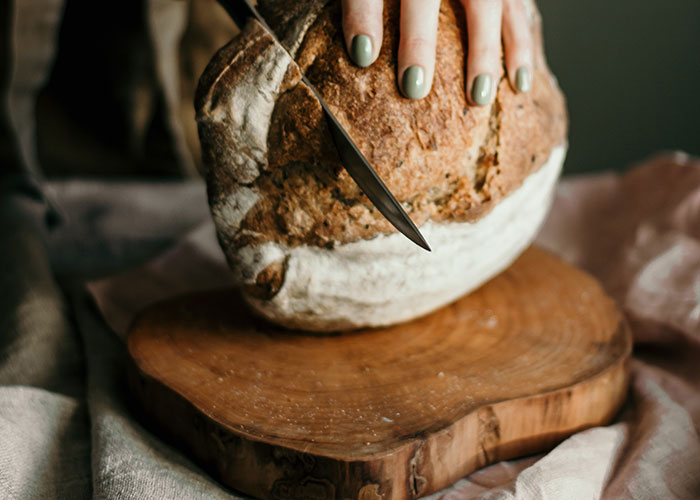
Image credits: ramen4sale
#36
Use real wine when cooking! The rule of thumb is never cook with a wine you wouldn't be willing to drink. Many recipies call for wine and people use "cooking wine" from a grocery store. Don't be that person. Use real wine and drink the rest of the bottle with dinner! Also --> makes for a really impressive date night ;-)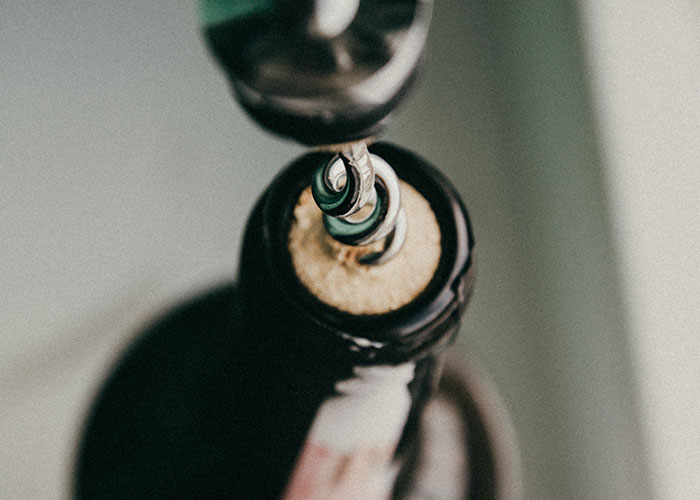
Image credits: Zaporah
#37
1. It's been said but I have to reiterate taste your food before plating it for guests!2. Don't put your nice cookware in the dishwasher! Wash them by hand, and use Bar Keepers Friend.
3. Don't dispose of that bacon fat! Save it in a sealed container. I use bacon fat in a lot of dishes.
4. Clean up as you go.
5. Stop cutting stuff on your counter tops, glass cutting boards, and those thin flexible sheets.
6. This one is personal taste, but I like to cut steaks and other cooked meats with a straight edge knives. The serrated ones just shred the meat. I like clean slices. I cringe when I see people "saw" a beautiful steak.
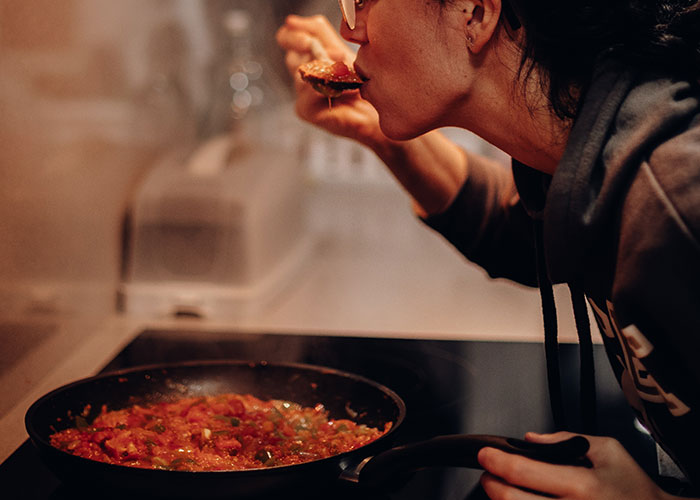
Image credits: Skurvee
#38
Teflon pans. For christ's sake, don't use metal utensils in it. I even see the 'big boys' doing this from time to time. Have a teflon pan at home that's scratched to s**t? Ever stop to wonder where the teflon that got scraped off went? You ate it.Garlic. My general rule of thumb is, the longer you cook something, the more garlic you add. Ever make an all day simmering marinara, or soup, and at supper time when you get to eat, you think 's**t, I thought I put enough garlic in this, but now I can't even taste it.'
Salt. Unlike it's mate, pepper, it is not a flavour. It's a *flavour enhancer.* Load up with too much, you're f****d. It's true, we humans need salt to survive, BUT NOT IN THE F**K-TON QUANTITIES THAT WILL KILL YOUR FOOD, AND EVENTUALLY KILL YOU. Ever go to a high end restaurant and notice that there's no salt shakers (for that matter, there's no pepper either) on your table? That (usually) means that an experienced pro cooked your meal, and that both you, and him/her understand that you're not going to have to f**k around, or tinker with your dish.
Three little words. Well, actually, the same word thrice: Taste. Taste. Taste. Making a long simmering stew, or sauce? Taste that b***h, regularly. Dirty little secret: Like that bouillabaisse, or aioli at your favorite restaurant? You can bet at least two, maybe more kitchen workers have had their fingers in it, tasting it to get it perfect for you.
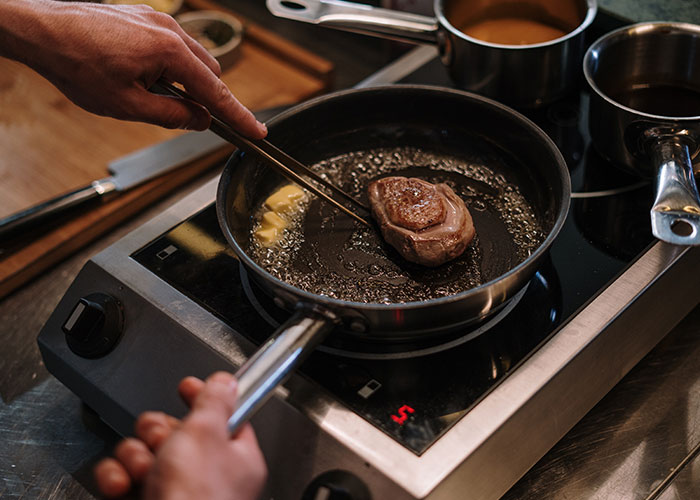
Image credits: dirtyrottenshame
#39
Beware of the densities of different types of salt, e.g. table salt is much denser than kosher salt because of how the grains pack together. It's easy to make something way too salty by not accounting for this.#40
Over sauteed garlic... Don't need to brown it, a minute in the pan with the onions is enough.#41
Sometimes you need to leave it alone. That steak. That piece of fish. That stock. Just because you're constantly moving doesn't mean you're improving your food.#42
Season all of your stuff first while it is still raw. If you do it last, it will most likely taste over-seasoned and you just wasted the last however many hours cooking unpleasant garbage.#43
Don't cook meat straight out of the refrigerator. It cooks better and tastes better when it starts at room temperature, actually.#44
When making Milksteak, it is important to bring the milk to a boil first before adding the steak. This ensures that the outside of the steak will have that nice, tough on the outside soft on the inside texture that makes this dish pair so well with jellybeans.#45
For real, actual amateurs, I'd say three things:Your stove has temperatures other than On and Off. Most people who just start out turn their burner on high and start throwing things in; that's ok for boiling water, but learn what works best with other things and get acquainted with your equipment (different range tops and cookware cook fairly differently).
Start with salt and pepper and get those right first. Seasonings make or break your food, but if you're just throwing s**t in because it sounds good you're gonna have a bad time. Also, keep in mind that you can pretty much always add more later but you can almost never take it back out.
Don't be afraid to screw up, and beware too much advice. Everyone has an opinion when it comes to cooking, both on how to do it and what it should come out like. Learn to make food you really enjoy eating first, and then you can branch out into tweaking it to please guests.
#46
According to Gordon Ramsey, amateur chefs always try to use that god damned black truffle oil which is never to be used by anyone with self-respect.#47
Cooking steaks low and slow. You should set your oven on its highest setting, put a cast iron pan on high until it's smoking, and sear your room temp steaks 3-4 minutes per side. Finish in the oven to your desired temp, just a couple of minutes to get a nice med-rare. Remove from oven, tent with foil, allow to rest for 15 minutes. Here's last night's steak, although that was using the sous vide method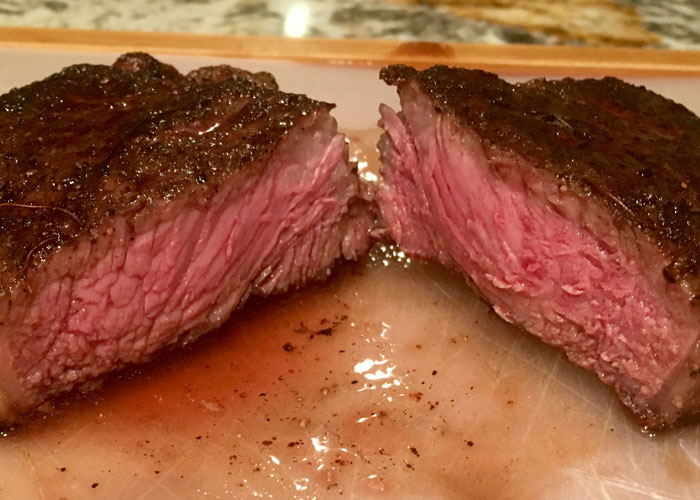
Image credits: jeihkeih
#48
When searing, you want your pan to be ripping hot to the point where the oil starts to smoke. Also, if you're finishing a cut of meat in a pan, it's always a good idea to add a bit of butter at the end and baste it.#49
Learn techniques, not recipes.#50
Thoroughly dry your proteins with a paper towel before cooking, especially chicken with skin. And, if you're trying to get perfect chicken thighs, stop grilling them to death. Instead, dry them with a paper towel, put a little olive oil on the skin and season, then cook in an oven at 420. You will have the crispiest skin you've ever had and no more grill fires!!! Liquid = Steam Steam = no sear, no crispy!#51
You destroy all of your knives and cutting tools through improper use, care and maintenance. If it has a sharp edge (not just knives! Peelers, microplanes, zesters, food processor attachments, etc) it should ALWAYS be handwashed and dried separately, and stored where the blades and edges won't be in contact with anything else. NEVER put them in the dishwasher (abrasives in the detergent and banging around in the machine aren't good for blades) or toss into a sink full of dirty items, or into a drawer full of clutter. You'll get greater utility doing so.#52
A lot of the things I do have been mentioned, so I'll go with a combination of things I learned about pasta and sauce.Using a ton of water for pasta really truly isn't necessary. Use less. Cover the pasta, maybe an extra inch or so. You don't need a gallon of water.
This has a side benefit of you ending up with VERY starchy pasta water.
When it's just short of being al dente, pull your pasta out with a pasta fork, or reserve a cup or so of that starchy water, instead of dumping it all through the colander into the sink.
Now, throw your pasta into the skillet or pan where you're cooking your sauce (you are cooking your sauce in another pan right?) and finish the pasta in the sauce, with a small amount of the starchy pasta water.
Give it some good stirs with some decent heat, and some of the pasta water will boil off, but the starch from the pasta water will emulsify the sauce, thickening it, and helping it stick to the pasta.
You should be able to slide a wooden spoon through the pasta and sauce, and leave a defined trail on the pan through the sauce.
This is the difference between a pile of pasta with a watery sauce that just drains onto your plate, and a delicious plate of pasta, with a lovely coating of sauce.
#53
For the love of god, stop washing meat, especially poultry.#54
I wouldn't ever call myself a professional chef. For starters, I'm a baker, and the last time I stepped foot in a professional kitchen was a few years ago. At any rate, I have some tips and advice that I give any person who wants to try and bake anything.For starters, I often hear "cooking is an art, baking is a science.". Hell, I saw it in this thread. I'm of the opinion that baking is a science, but what you do with those technical skills is an art. This is more motivational advice than anything, you're taking ingredients and putting them together to make something new. It's cool and everyone will love you if you show up with cookies :)
Now onto some real advice. When you overmix a batter, you create more gluten out of the flour. This will make anything dense and tough. Don't be afraid of lumps.
Always add salt. It won't make your cake taste salty, it'll just add a new dimension and intensify the flavors.
Measuring by weight is considered to be more accurate, but I wouldn't call it a big deal if you're a hobbyist. A kitchen scale is cheap though, so don't be afraid of those recipes with weights instead of cups.
Sugar can sense your fear. Stay calm but be careful, hot syrup is incredibly dangerous. And use a candy thermometer. I once dumped hot sugar syrup all over myself, I don't think I've ever removed an article of clothing so fast as I did that apron I ripped off of my body.
If you don't think you like frosting, you might be used to American buttercream. This is made by whipping butter (or shortening in the case of a lot of grocery store bakeries) and powdered sugar together, making a greasy and overtly sweet mess. Try Swiss or Italian buttercream instead, which is made with hot sugar. Italian buttercream is my favorite, but Swiss buttercream is good if you're nervous about the raw egg whites.
Always make more frosting than you think you'll need. It's better to have too much than not enough, and you can always pipe more flowers...or just eat it, if you're into that. :P
#55
not a pro, but i've noticed a common mistake is not knowing your oils. biggest mistake i see is people cooking with olive oil. it has a super low smoke point and the flavor breaks down pretty easy. i keep a few essentials and dabble in something more exotic if i come across it.High heat (searing, pan fry) - Coconut oil, peanut oil, Bacon fat (don't toss it, keep the fat and filter it once it cools down a bit)
medium heat (eggs, vegetables) - Avocado oil, Butter (the good stuff like kerrygold, cheap store brand has water in it)
low heat (drizzle over salads or steamed veggies) - olive oil, pistachio oil, walnut oil, or anything with a strong flavor that you want to preserve.
if you want to try some more exotic oil on the cheap, trader joes has a great selection. i picked up a 3 pack of 12oz. each of walnut, pistachio, and hazelnut oil for $10 or so a while back that i love.
#56
As my sous chef once sang to me when I wasn't doing it on the grill:*"Season both sides of the chicken"*
Any meat, or non meat really, can use a little seasonin before it gets grilled or cooked in anyway. Salt, pepper, acid, cumin it; whatever!
#57
I'm ashamed to admit that I only just recently figured out what I was doing wrong that resulted in always overcooking my grilled burgers and steaks.Leave the damn top of the grill open!
High or Med-High heat to sear the outside, but keep the top open to prevent the "oven effect" and cooking the meat thru the middle.
#58
Cook rice with chicken broth instead of water. Makes it taste a lot better.#59
Stay organized and keep your station clean. Training yourself to take 1 or 2 things out at a time, measure it, chop it, prep it then putting it back right afterwards before moving onto the next ingredient makes cooking less overwhelming/stressful and minimizes all of the cleaning at the end. Especially for an amateur cook cooking in a home kitchen, it makes for a much more relaxing and even enjoyable experience and builds confidence to tackle some of the more intimidating recipes.#60
Don't be afraid to experiment and adjust recipes to your liking. Taste things as you go to adjust seasoning, salt, sugar, and acidity levels. Don't just be a robot following a recipe. Food is an art.#61
This is pretty obvious, but when prepping in bulk, do everthing in stages. Such as, peeling potatoes for mash: don't peel one potato, set down peeler, pick up knife, cut potato, place potato in water, next potato, pick up peeler... etc. Peel all of them, then cut all, and so on. Or assembling hors': Don't build them one at a time, treat it like an assembly line and it'll take half the time, be more consistant, and create less mess.#62
Stop buying s**tty non stick pans. I don't care how much you paid for them, they are s**t. Get yourselves some stainless or cast cookware and learn to season them. This will make them non stick.#63
Not a chef, but boil pasta at full heat!Some people let it boil up, then lower the heat. That makes the pasta sticky, those macaroni likes to tuble around in their hot bubble bath.
